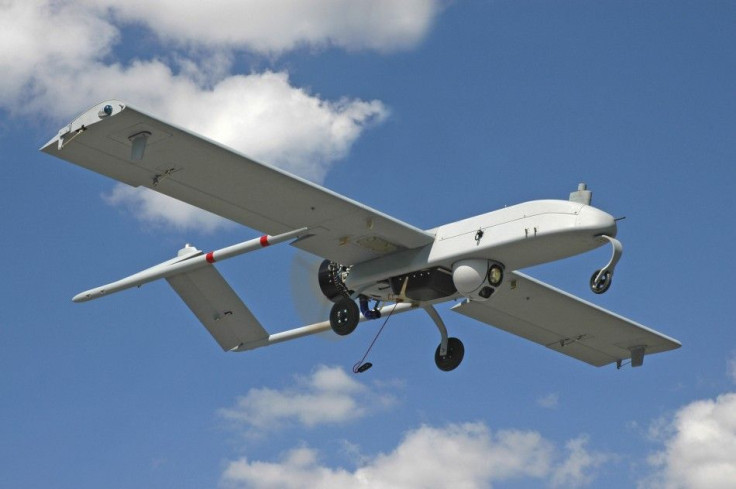US Drone Policy Under Attack Again: UN, Afghanistan Question Its Legality

The U.S. military strategy of continued drone strikes to fight insurgents in Pakistan and Afghanistan once again stands accused of violating international law, this time by the U.N.'s human rights chief, Navi Pillay, and Afghan President Hamid Karzai.
The unmanned aerial strikes raised serious questions on compliance with international law, said Pillay Thursday, speaking at the end of a fact-finding mission to Pakistan.
The U.N.'s criticism closely followed U.S. Secretary of Defense Leon Panetta's earlier statement, which had categorically dismissed suggestions that aerial strikes violated Pakistan's sovereignty.
This is about our sovereignty as well, Panetta said Wednesday speaking in India, just two days after a drone strike killed al-Qaida's second-in-command, Abu Yahya al-Libi, in North Waziristan.
Karzai also slammed the drone policy during Panetta's visit to the Afghan capital, saying that Western military operations that harmed and killed civilians can in no way be justifiable, acceptable and tolerable.
He cut short his visit to China and returned to Kabul, arriving after Panetta's departure, to protest the deaths of 18 civilians in a NATO airstrike in eastern Afghanistan Wednesday.
Pakistani foreign minister Hina Rabbani Khar summoned the U.S. deputy ambassador in Islamabad Tuesday to register protest against the recent drone attacks that killed several militants in Pakistan.
Drone attacks do raise serious questions about compliance with international law, in particular the principle of distinction and proportionality, said Pillay, adding that ensuring accountability for any failure to comply with international law is also difficult when drone attacks are conducted outside the military chain of command.
Pillay said she had urged the Pakistani government to invite the U.N. Special Rapporteur Summary or Arbitrary Executions to investigate the claims of human rights violations.
Drone strikes have also been carried out in Yemen and Somalia apart from Pakistan and Afghanistan.
U.S. Ambassador to Afghanistan Ryan Crocker said last month that the security pact signed jointly by Obama and Karzai, which defines America's future role in Afghanistan, didn't rule out the possibility of drone strikes against insurgent targets in Pakistan even after the withdrawal of U.S. troops in 2014.
However, the Strategic Partnership Agreement, stating that the U.S. will not use Afghanistan as a base to launch attacks against other states, says that Washington and Kabul have the right to self-defense in case of threats from any country.
There is nothing in this agreement that precludes the right of self-defense for either party, and if there are attacks from the territory of any state aimed at us we have the inherent right of self-defense and will employ it, Crocker had said.
Despite repeated allegations that such aerial attacks violate human rights and international defense law, U.S. officials have largely opted to not discuss the CIA's drone program in Pakistan while privately saying that the covert attacks are legal and have proved to be an effective strategy against the militants.
Panetta said the relationship between the U.S. and Pakistan was complicated and often times frustrating.
They have provided some cooperation. There are other times when frankly that cooperation is not there. But the United States cannot just walk away from that relationship. We have to continue to do what we can to try to improve areas where we can find some mutual cooperation, Panetta said.
White House Counterterrorism Adviser John Brennan too defended the U.S. policy on targeted killings last month, saying, In this armed conflict, individuals who are part of al-Qaida or its associated forces are legitimate military targets. We have the authority to target them with lethal force just as we targeted enemy leaders in past conflicts, such as German and Japanese commanders during World War II.
Brennan's claim that the U.S. had the authority to target enemies, likening the current situation to that during the World War II, was met with criticism for misinterpreting international laws.
In a 'noninternational armed conflict' like this, the only 'enemies' targetable are those 'directly participating in hostilities' against the United States or performing a 'continuous combat function' with armed groups targeting the U.S., wrote Daphne Eviatar, an expert in law, national security and human rights, in Politico.
Not every member of al-Qaida or 'associated forces' meets that criteria. A cook, dishwasher or doctor aiding al-Qaida fighters may well be a 'member' of al-Qaida -- yet not be lawfully targetable. Brennan, speaking on behalf of the Obama administration, ignored that fact, she wrote.
The frequency of the drone strikes rose after Obama took office in 2008 but saw a sharp drop after a November NATO strike killed 24 Pakistani soldiers on the Afghan border, causing a fallout in the diplomatic relations between Washington and Islamabad.
© Copyright IBTimes 2024. All rights reserved.












